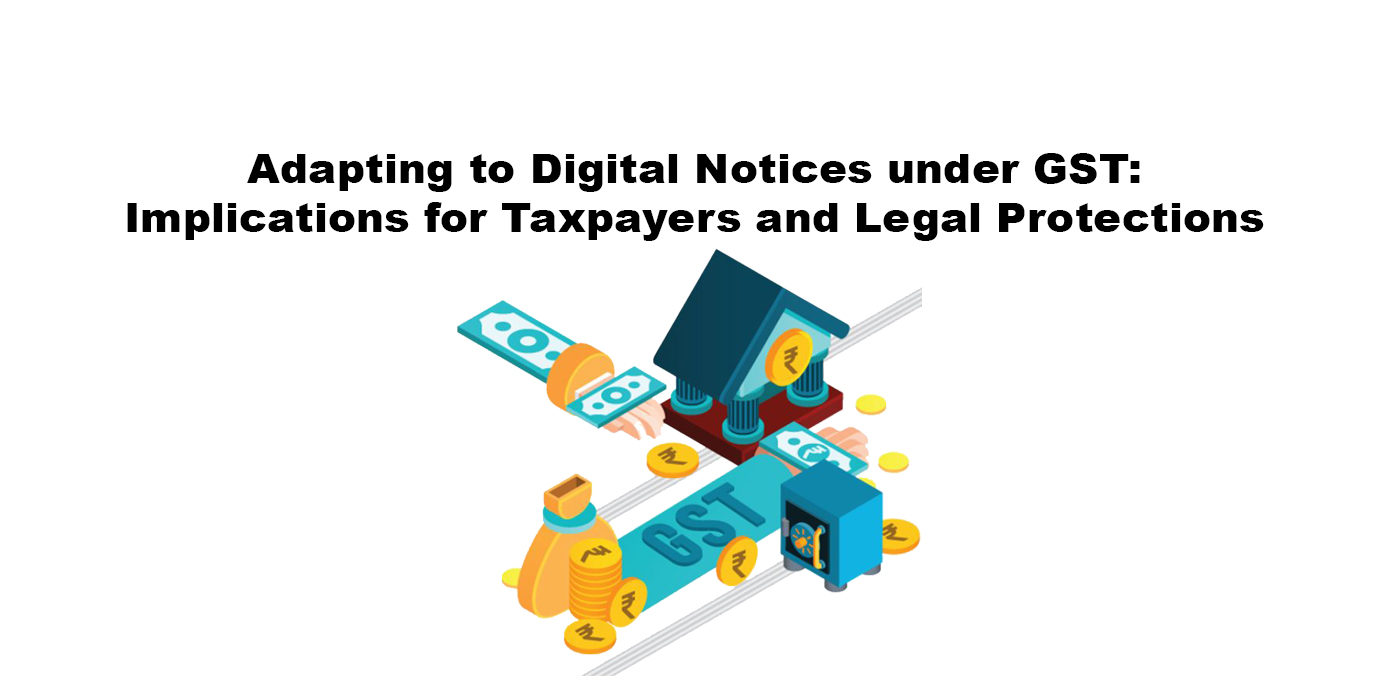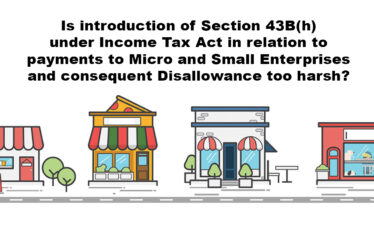In an era of digital transformation, the Revenue Department has introduced significant changes in the delivery method of notices and orders related to GST. Here is an overview of these updates, along with the consequences of missing notices and a case law illustrating the safeguards available to taxpayers.
Changes in Notice Delivery Method: Notices and orders are now exclusively uploaded on the GST Portal, eliminating the need for separate postal communications. This digital shift aims to streamline communication and enhance efficiency in GST proceedings.
Revamped Notices Tab: To facilitate user experience, the GST Network (GSTN) has introduced a redesigned “Notices and Orders” tab on the portal. This update categorizes sections for easy navigation and access to relevant information, further enhancing user convenience.
Simplified Access: Taxpayers can now conveniently locate and respond to notices by accessing the “Notices and Orders” tab on the GST Portal. This streamlined process empowers taxpayers to effectively manage their compliance requirements with greater ease.
Preventive Measures: To mitigate the risk of missing notifications, taxpayers must ensure that the mobile numbers and email addresses of authorized signatories are regularly updated on the GST Portal. This proactive step ensures prompt receipt of communications and enables timely responses to notices.
Consequences of Delayed Notifications: Despite these improvements, there’s a possibility of taxpayers receiving notifications later than the upload date. This delay could impact timely responses, especially in cases involving orders, potentially leading to missed deadlines and the inability to file appeals.
Case Law Illustration:
Jak Communications Private Limited Vs Deputy Commercial Tax Officer (Madras High Court)
In a recent landmark judgment, the Madras High Court addressed the case of Jak Communications Private Limited versus Deputy Commercial Tax Officer, challenging an order dated 25.05.2023. Central to the dispute was the issue of non-physical service of GST notices, which raised concerns regarding the infringement of principles of natural justice.
Analysis:
The petitioner contended that despite crucial notices being uploaded on the GST portal on various dates, including 12.2021, 24.03.2023, and 15.05.2023, they were not physically served, depriving them of the opportunity to respond or attend a personal hearing. The respondent countered by stating that despite the availability of notices on the web portal, the petitioner failed to participate in a personal hearing. However, acknowledging the court’s authority, the respondent expressed willingness to comply with any directives from the court.
After thorough deliberation, the court recognized the validity of the petitioner’s claim regarding unawareness due to non-physical service. Stressing the significance of affording adequate opportunities, the court noted the absence of a filed reply by the petitioner and the lack of a chance for a personal hearing. Consequently, the court deemed the order dated 25.05.2023 to be in violation of natural justice, setting it aside and remitting the matter back to the respondents.
To sum up, the ruling of the Madras High Court underscores the importance of upholding principles of natural justice in GST proceedings. By intervening to rectify procedural irregularities, the court reinforces the imperative of fair hearings and opportunities for all parties involved. This decision emphasizes the delicate balance between administrative efficiency and ensuring justice in matters of taxation. Taxpayers are reminded of their rights to fair treatment and due process, ensuring a more equitable and transparent tax system.





